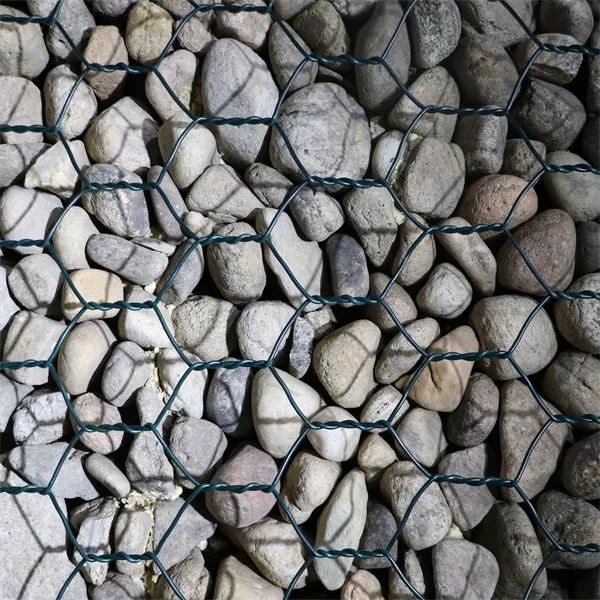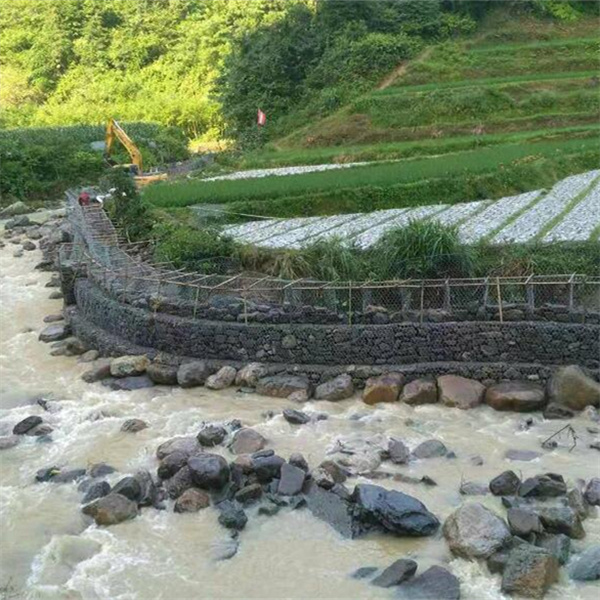svi . 23, 2025 10:58 Back to list
Stone Cage Nets for Erosion Control & Construction Reliable Factories
- Introduction to Stone Cage Net Solutions
- Technical Advantages in Design & Durability
- Supplier Comparison: Key Metrics
- Customization for Diverse Project Needs
- Case Studies: Real-World Applications
- Quality Assurance & Compliance
- Selecting Reliable Stone Cage Net Factories

(stone cage net)
Essential Solutions for Modern Infrastructure
Stone cage nets, also known as gabion mesh systems, have become critical components in erosion control and structural reinforcement. These galvanized steel wire containers filled with stones offer unparalleled flexibility across civil engineering projects. Leading stone cage net
suppliers now integrate polymer coatings and double-twist hexagonal weaving, increasing product lifespan by 40-60% compared to traditional designs.
Engineering Excellence in Material Science
Premium manufacturers utilize high-grade steel wire (3.0-4.0mm diameter) with zinc-aluminum alloy coatings (250-400 g/m²). Third-party testing confirms:
- Tensile strength: 350-550 MPa
- Salt spray resistance: 1,200-2,000 hours
- Deformation tolerance: <5% under 80 kN/m² load
Manufacturer Comparison Analysis
| Parameter | Factory A | Factory B | Industry Average |
|---|---|---|---|
| Production Capacity | 12,000 m²/day | 8,500 m²/day | 6,200 m²/day |
| Coating Thickness | 380 g/m² | 320 g/m² | 280 g/m² |
| ISO Certification | 9001, 14001 | 9001 | 70% compliant |
Tailored Engineering Configurations
Advanced stone cage net factories provide modular solutions:
- Cell sizes: 60×80mm to 100×120mm
- Panel thickness: 2.7-4.3mm
- Custom lengths: 1-6 meters
Specialized PVC coatings (2-3mm) extend service life in marine environments by 15-20 years based on accelerated aging tests.
Documented Project Performance
Coastal reinforcement project (2022):
- Location: North Sea coastline
- Material: PVC-coated stone cage nets
- Result: 98% erosion reduction after winter storms
Certification & Testing Protocols
Reputable suppliers maintain:
- ASTM A975 compliance
- EN 10223-3 certification
- Third-party load testing every production batch
Strategic Supplier Selection Criteria
When evaluating stone cage net factories, prioritize facilities with on-site metallurgical labs and documented 10+ year track records in infrastructure projects. Top-tier suppliers typically offer 20-25 year warranties, backed by 0.5-1.2% defect rates in quality audits.

(stone cage net)
FAQS on stone cage net
Q: What are the main applications of stone cage nets?
A: Stone cage nets are primarily used for erosion control, slope stabilization, and retaining walls in civil engineering projects. They also serve as gabion baskets in landscaping and flood management systems.
Q: How to verify reliable stone cage net suppliers?
A: Check certifications like ISO 9001, request product samples, and review client testimonials. Reputable stone cage net suppliers should offer technical specifications and customized solutions.
Q: What quality standards do stone cage net factories follow?
A: Trusted stone cage net factories adhere to ASTM/EN standards for wire gauge and coating durability. They conduct tensile strength tests and corrosion resistance checks before shipping products.
Q: Can stone cage net factories provide custom sizes?
A: Yes, most professional stone cage net factories offer tailored dimensions, mesh patterns, and coating types. Custom orders typically require technical drawings and minimum quantity agreements.
Q: What factors affect stone cage net pricing?
A: Pricing depends on material grade (galvanized/PVC-coated), wire diameter, and order volume. Transportation costs and optional accessories like diaphragm reinforcements also influence final quotes from suppliers.
-
Visualizing Gabion 3D Integration in Urban Landscapes with Rendering
NewsJul.23,2025
-
The Design and Sustainability of Gabion Wire Mesh Panels
NewsJul.23,2025
-
The Acoustic Performance of Gabion Sound Barriers in Urban Environments
NewsJul.23,2025
-
Mastering the Installation of Galvanized Gabion Structures
NewsJul.23,2025
-
Gabion Boxes: Pioneering Sustainable Infrastructure Across the Globe
NewsJul.23,2025
-
Custom PVC Coated Gabion Boxes for Aesthetic Excellence
NewsJul.23,2025
-
Installation Tips for Gabion Wire Baskets in Erosion Control Projects
NewsJul.21,2025






